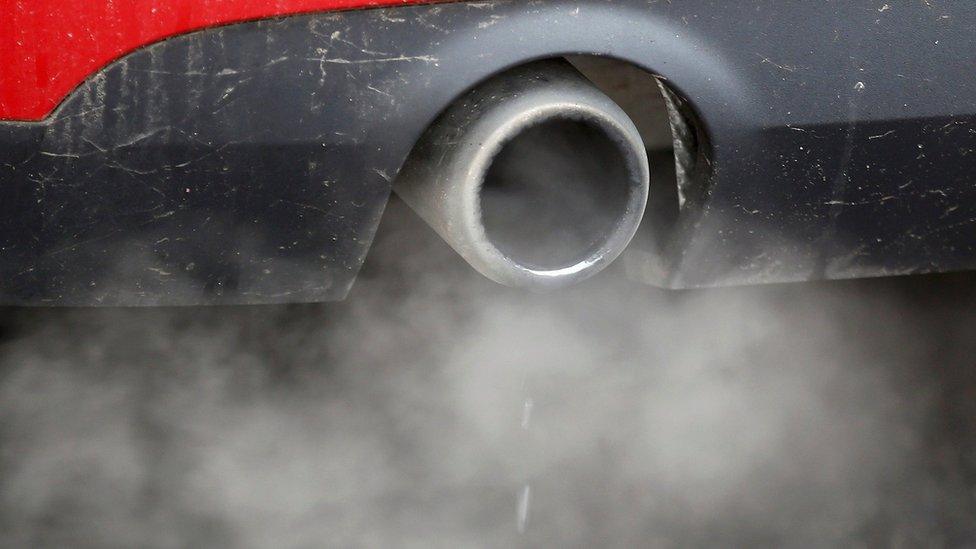Record UK car registrations in March
- Published
- comments
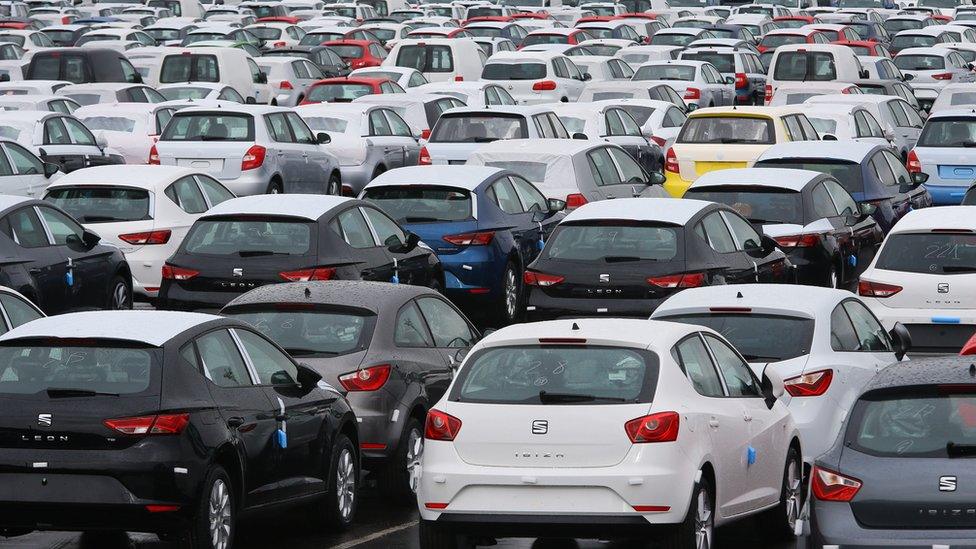
March was the best month to date for UK car registrations, according to the car industry trade body.
The Society of Motor Manufacturers and Traders (SMMT) said 562,337 new cars were registered in March, up 8.4% on the same month last year.
Those figures were boosted by a change in the number plate in March and planned changes to the Vehicle Excise Duty (VED), it said.
Many customers would have benefited by buying their car before 1 April.
Changes in the way cars are taxed came into effect on that date.
In particular, anyone planning to buy a low-emission car would have had an incentive to buy before 1 April.
"These record figures are undoubtedly boosted by consumers reacting to new VED changes, pulling forward purchases into March, especially those ultra-low emission vehicles that will no longer benefit from a zero-rate fee," said Mike Hawes, SMMT chief executive.
However, dealers and manufacturers will also have pre-registered some vehicles, which are not actually sold to buyers until a later date, sometimes at a discount.
Diesel shift
Diesel car registrations rose 1.6% in March to 244,463. However, diesel's share of the overall car market fell to 43%, from 46% in March 2016.
Diesel cars were once touted as environmentally-friendly, but have fallen out of favour as studies have found they emit higher levels of polluting nitrogen oxides than petrol cars.
That negative image was bolstered in 2015, when Volkswagen admitted to fitting cars with devices which allowed them to cheat emissions tests.
As a result, diesel cars might be targeted when the UK government publishes its plan to meet EU air quality standards. That plan is due by the end of the month.
The prospect of higher taxes has upset many car owners who were encouraged to buy diesel cars in the early 2000s by tax changes made by the Labour government.
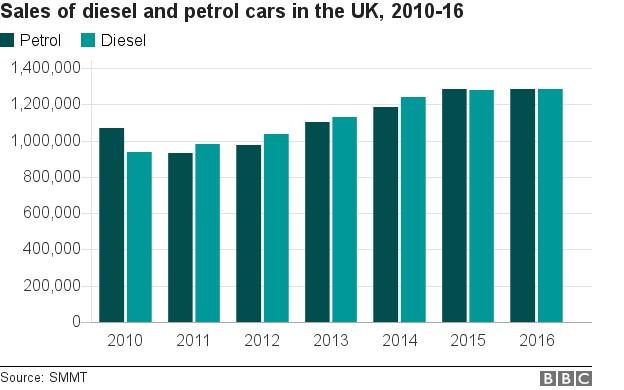
New scale
In March, registration of of low-emission cars jumped by almost a third, as customers raced to avoid higher taxes.
From 1 April onwards, only newly registered vehicles with zero emissions - electric and hydrogen cars - will escape VED.
For other low-emission cars, such as hybrids, there is a sliding scale of charges related to CO2 output for the first year of ownership. After that time, petrol or diesel vehicles are subject to a "standard" rate of £140 a year.
Buyers of cars worth more than £40,000 attract a "premium" levy. After their first year of ownership they pay an extra £310 a year, for five years, on top of the £140 standard rate.
Previously most low-emission cars would not have paid any VED.
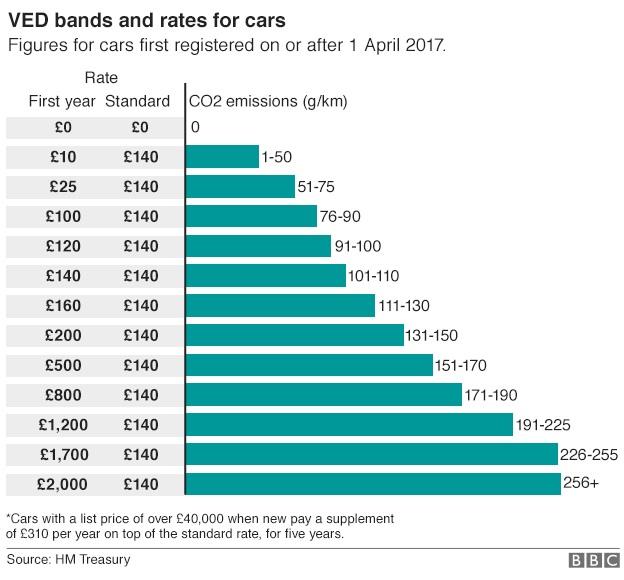
'Last hurrah'
But Mr Hawes warned that the March rise could be followed by slowdown in April, particularly as there are fewer selling days in April because of the timing of Easter. But he expects the market to remain strong this year.
"Looking ahead to the rest of the year, we still expect the market to cool only slightly, given broader political uncertainties, as there are still attractive deals on offer," Mr Hawes said.
However, some economists are less optimistic.
Howard Archer, chief economist at IHS Markit, says the industry will face "an increasingly challenging year".
He says that rising inflation and sluggish wage rises will erode the purchasing power of consumers. Meanwhile, imported cars are likely to become more expensive because of the fall in value of the pound, he points out.
"There may have been an element of a last hurrah in March's record car sales performance," he said.
- Published13 March 2017
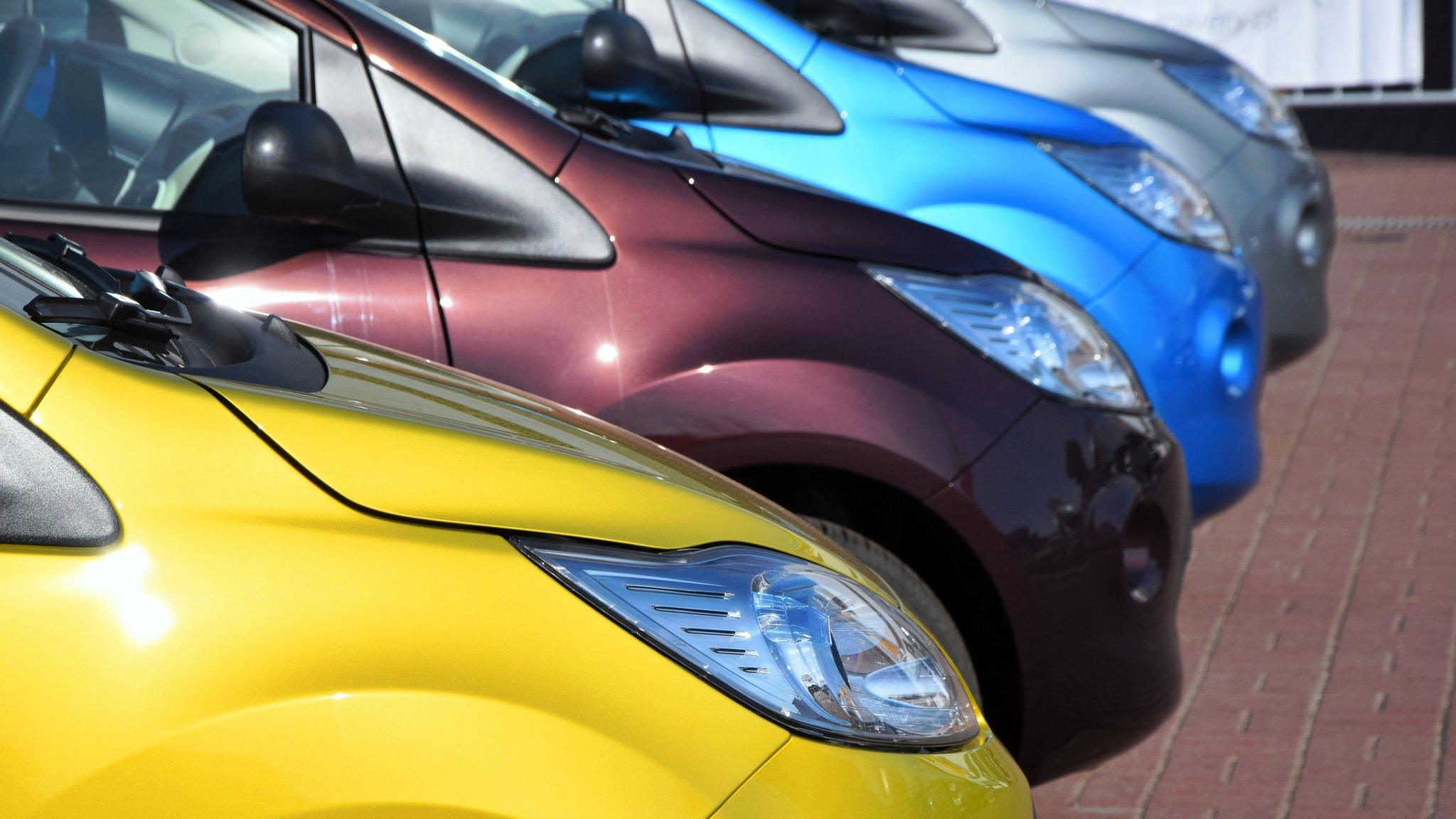
- Published5 April 2017
